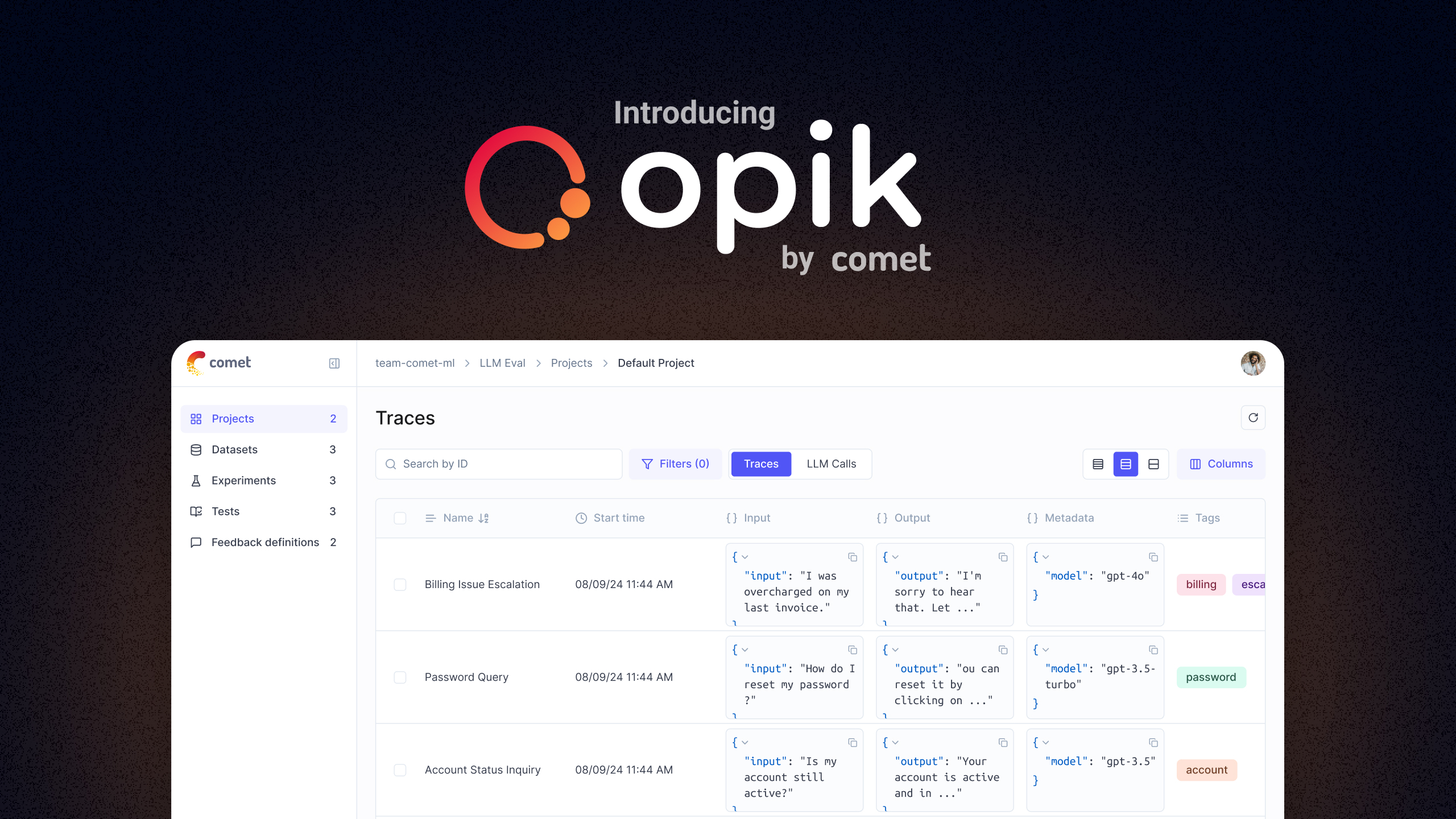Today, we’re thrilled to introduce Opik – an open-source, end-to-end LLM development platform that provides the observability tools you need to confidently evaluate, test, and monitor your LLM applications across development and production.

End-to-End LLM Evaluation in One Platform
Opik was created to address the unique challenges of LLM-based development:
- See what’s happening within your LLM pipeline: Opik automatically traces your entire pipeline, allowing you to step through and debug each component of your application, even in complex RAG or multi-agent architectures.
- Deploy LLM applications you can trust: Opik has out-of-the-box support for complex LLM-based evaluations, as well as real-time monitoring, allowing you to detect hallucinations, unintended behaviors, and performance degradations immediately.
- Simplify unit testing: Opik integrates with Pytest to support “model unit tests,” allowing you to compose robust evaluation pipelines out of reusable components. You can implement LLM-as-a-judge metrics in a single line of Python, and reuse them across all of your applications.
- Continuously improve your LLM application: Use Opik to collect, annotate and score your production data through simple Python methods or through the Opik UI.
Why Comet? Developer-First AI & ML Expertise
We’ve always been closely connected to AI developers, working to streamline how teams build and productionize machine learning models. Our MLOps tools like Experiment Management and Model Production Monitoring help close the loop in the model development workflow. But our commitment to the community goes beyond our products – we’ve also been passionate about supporting the open-source community by open-sourcing portions of our platform such as Kangas, our tool for ML analysis and visualization.
Opik is a natural next step for us. We hope it enables Comet users and the AI community at large to get more out of LLMs. We named it after Ernst Opik, an Estonian astronomer who was at the forefront of the study of comets and solar system dynamics. With so many of today’s great discoveries happening at the forefront of AI, we hope you’ll find inspiration in Opik’s story.
Getting Started with Opik
Install Opik with just a few lines of code – whether you’re self-hosting or using Comet’s cloud platform, Opik is built to fit seamlessly into your existing stack. Opik is compatible with any LLM you like, and supports direct integrations with OpenAI, LangChain, LlamaIndex, Predibase, Ragas, promptfoo, LiteLLM, and Pinecone out of the box.
Opik’s full LLM evaluation feature set is free to use, with a highly scalable and industry compliant version available for enterprise teams. Sign up for free, check out the documentation, and log your first LLM trace today.
Join the Opik Community
As an open-source project, we’re eager to see how the community shapes Opik’s future. We invite you to contribute bug reports, feature requests, or improvements to the documentation – or join our discussions on Slack and Github to leave feedback and help shape the roadmap.

